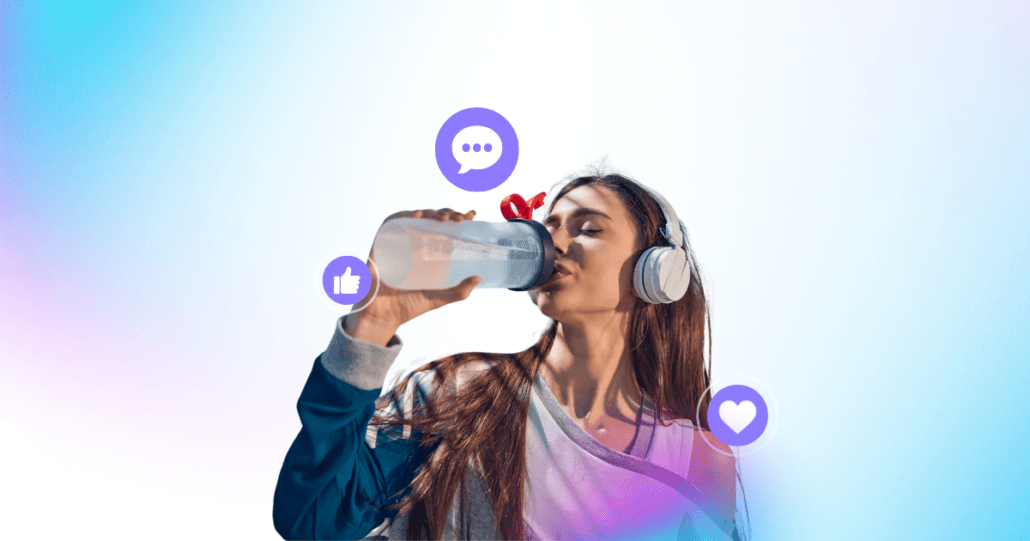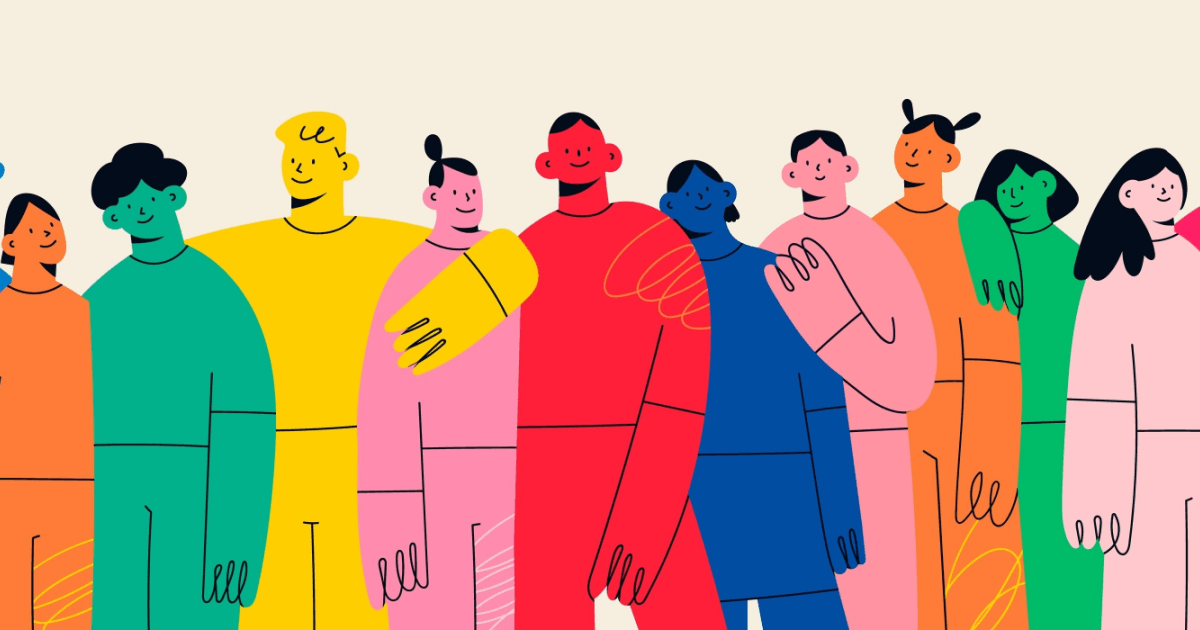December 13, 2023
All customers are valuable. But, not all customers are the same. Some customers may buy from you once or here and there. But brand advocates regard your brand as a staple in their lives and will sing your praises to their friends, family, and on social media. They also shop with you all the time.
Every day, hundreds of millions of posts appear on social media. Consumers are often inundated with content from brands, while retailers and brands find themselves shouting into the void.
To stand out among the marketers jostling to be heard on social media, you must be smart, not loud. The best strategy is leveraging user-generated content (UGC) creators from your ideal customers. This approach will help you go beyond the once-and-done buyers and reach consumers who shop again and again. Let these loyalists become your brand advocates.
Consumers want to build relationships, connect emotionally, and support the brands they cherish, especially during a tough economy. You just have to guide them. Here are some strategies for targeting and nurturing loyal customers to become your brand advocates.
What is a brand advocate?
A brand advocate is an individual who shares their positive sentiment and experiences about your brand with their followers and friends.
Brand advocates are true loyalists. They enjoy your products, interact with you on social media, and appreciate opportunities to share feedback with you. It’s more than just whether people are spending money with you — it’s about emotion and identity.
According to Leonie Brown, Qualtrics XM Scientist, “True loyalists understand your product and brand, believe your offering to be good value, and identify with your product on a personal level.”
Why you need brand advocates
Brand-generated marketing is important in a healthy marketing mix, but it’s impossible to meet consumers’ demands for content with traditional marketing messages alone, especially when your marketing team has a lean budget. Consumers also actually prefer UGC created by their peers.
Brand advocates, who are real customers and love your brand, are the mouthpiece you didn’t know you needed. Because brand advocates are just regular people and not affiliated with your company, they’re highly influential.
Consumers trust other consumers more than anyone else. 100% of shoppers say they’ve purchased a product based on a recommendation from another shopper that they saw online, and 78% trust everyday social media users just as much or more than they did a few years ago.
Most shoppers say they won’t buy anything without consulting UGC first. They especially seek out customer reviews and photos or videos from other shoppers.
Encourage a peer-to-peer recommendation environment by tapping into your brand advocates. 69% of marketers today are working with smaller creators, like everyday consumers and social media users. Partnering with these creators brings higher engagement, trust, and authenticity than traditional marketing — and, it’s cost-effective, scalable content.
The creator economy is booming and is currently valued at $16.4 billion. Over half (53%) of shoppers consider themselves to be UGC creators, according to the Bazaarvoice Shopper Experience Index. 17% of these creators actively create UGC, and 36% will do so when asked.
5 ways to find brand advocates
Both shoppers and marketers are tightening their budgets these days. Activating brand advocates makes other consumers feel more confident shopping with you, and this strategy offers a high return on investment when marketing teams need to do more with less.
Consumers are leaning more into the expertise of everyday social media users and subject matter experts to discover new products, learn about how something can meet their needs, and purchase with confidence.
We’ve found that about 1% of your community — your loyalists — can produce about 90% of your content. You just need to target your brand advocates and harness their power. Here’s how to find them.
1. In-person events
Events like in-store holiday activations, sports-themed contests, or awareness month campaigns are a fun way to engage shoppers in real life. In-person events can help you stand out by offering something unique and memorable.
In-person events also help you get to know your most loyal shoppers. Pay close attention to those who show up, as well as consumers who make an effort to speak to you, ask questions about your brand or products, and purchase from you.
Loyalists tend to show up organically to an in-person event. But, you can reward them and make them feel extra special by peeking into your shopper data and personally inviting them to attend. This approach will build and nurture relationships with brand advocates.
Another way to leverage in-person events is to see who usually attends similar activations. For instance, we spoke to digital creator Marina Mitrakos, whose passion for fashion and beauty led her to create content for brands. One way she’s developed her business is by attending fashion and beauty events and posting about them on social media.
2. Email list/newsletter
While people enjoy receiving messages from brands in their inboxes, sending a mass blanket email to everyone on your list isn’t the best way to find brand advocates. People stay on email lists for years and never actually interact with brands.
So, go beyond the people that are simply on your email list. Instead, track engagement on email content, like clicks on coupons, responses to polls and surveys, or email replies. These interactions showcase the consumers who are genuinely interested and invested in your brand.
Emails are also a great way to ask customers for feedback and collect UGC, ultimately turning them into brand advocates. Our Shopper Experience Index revealed that 43% of consumers prefer brands and retailers to use emails to ask them for their opinions on products they’ve purchased.
Sending an email after someone purchases from you to say thanks and ask for reviews and other UGC yields big results. We’ve found that review request emails increase review content by 4x to 9x, and sending a follow-up may lead to a 50% increase in review volume — or much more. Clothing brand MeUndies, for example, has seen a 218% increase in review collection since optimizing review request emails.
When requesting UGC, consumers like it when you tell them exactly what kind of content you want. For example, 60% will take a photo if you ask them to.
Shoppers appreciate it when they feel like brands care about what they have to say and are listening and responding to their needs. They’ll be more than willing to respond to your request, create UGC, and become a brand advocate.
3. Cause-related marketing campaigns
Cause marketing refers to marketing strategies that strive to increase revenue, while also taking action to improve society in some way. This might involve raising money or awareness for an issue or charitable organization or highlighting your sustainability or corporate responsibility initiatives.
If your brand values a specific social, environmental, or humanitarian cause, be vocal about it — and take note of who’s interacting with content related to your cause. Consumers want to support and advocate for brands and retailers that also support the issues they care most about.
For instance, if being eco-friendly matters to your brand, share your sustainability efforts and regularly promote that you’re cutting down on boxes and shipping to target customers who prefer to shop with sustainable brands. These efforts pay off.
According to a Bazaarvoice survey of the Influenster community, 78% of shoppers said they prioritize using sustainable products across categories, and 77% will pay more for products promoted as “sustainable” or “clean.” 88% will purchase from new brands if they claim to be more sustainable.
4. Pay attention to your social channels
Who are your most engaged followers? Most shoppers do follow their favorite brands on social media, but you should hone in on the followers who interact with you most.
Knowing who frequently comments on your social posts, shares your content, enters giveaways, tags other users, and talks about your brand on social is crucial. These social media users make compelling brand advocates!
Social media is an amazing platform for starting conversations and getting noticed. Nearly 60% of shoppers discover new products and services on social media, where they research items and make purchasing decisions. Most shoppers also buy things directly from social media.
Keeping tabs on who’s talking about you on social media is important, but don’t neglect people who are sliding into your DMs. Direct messages are an excellent place for one-on-one conversations and connections.
Responding to any DMs, posts, or other customer feedback is crucial for relationship-building. Consumers expect a response from brands when they offer feedback, and responding heightens trust and showcases your authenticity.
5. Targeted shopper communities
Using a product discovery and reviews platform like the Influenster App, gives you the opportunity to target the largest community of everyday consumers and skilled creators to generate the highest-quality UGC — including reviews, photos, videos, and social content. This, in turn, increases brand awareness, lets you reach new audiences, and helps you convert more customers across brand and retail.
Influenster matches your product to your ideal audiences based on over 1,000 data points for each of the community’s 8 million global members. You can activate unique segments, such as loyalists and competitive users, members who shop at key retailers, and consumers with specific skincare or dietary needs.
The ability to hyper-target consumers based on behaviors and other characteristics beyond typical demographics was a key benefit in choosing Influenster
Elizabeth Northrup, Associate Brand Manager at Kraft Heinz
Influenster members are also prolific content creators. Based on Bazaarvoice Sampling Community data from June 2023, here’s a look at what these members bring to the table:
- 500,000+ new pieces of UGC each month
- 73 million total monthly impressions for Influenster social campaigns
- 34,000+ posts for Influenster social campaigns
- $5.5 million total monthly earned media value for Influenster social campaigns
One of the most effective ways to tap into the Influenster community and reap these benefits is through product sampling. This strategy gets your products into the hands of your ideal customers. In turn, they create authentic content about your brand in the form of social posts, reviews, photos, or videos.
Beauty giant Rimmel sent its new Wonder Ombre Holographic Eyeliner out to target consumers through sending custom sampling boxes. This helped the brand collect over 1,200 product reviews, which are displayed on Influenster, the brand’s website, and syndicated across its retail partner websites.

Rimmel’s sampling campaign generated real impact for the brand, including:
- 44% higher sales lift versus benchmarks for average digital campaigns in the beauty category
- 69% higher sales life versus benchmarks in the product categories of the sampled products
- 73% of samplers said they would likely purchase something from Rimmel in the next 6 months
Targeting your ideal customers to be brand advocates
One-time or some-time customers are great. But, marketing to all-the-time customers is a winning strategy. These shoppers are your ideal customers, who love your products, your mission, and the experiences you provide, both online and in-person.
Finding and building relationships with your brand advocates builds trust with other consumers — helping you stand out and helping them feel confident and appreciated.
If you’re struggling to find advocates for your brand or you don’t know where to look, Bazaarvoice affable.ai is an AI-driven influencer marketing platform that lets you easily find your creators, manage collaborations, track your campaigns, and measure your performance.
Get started









